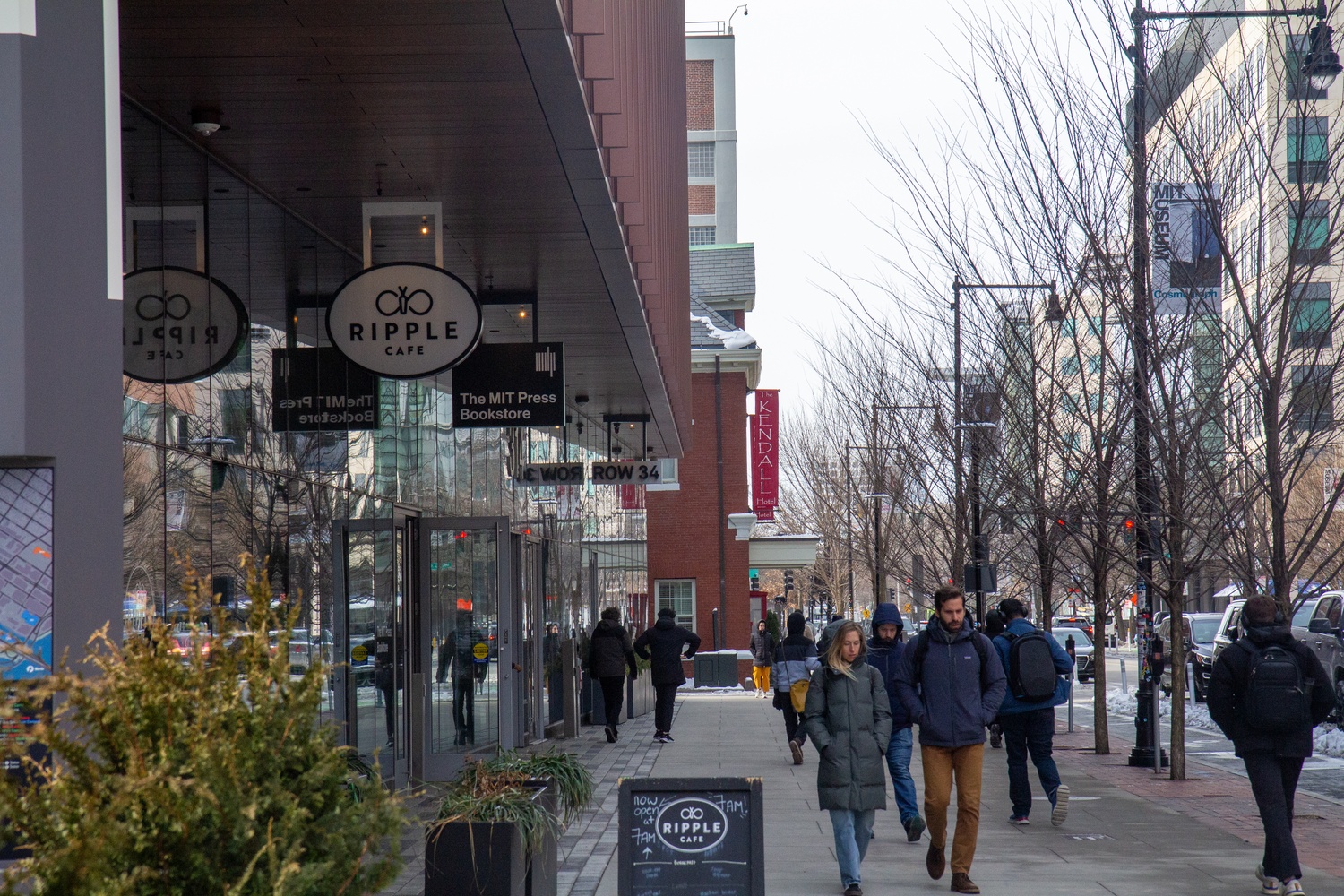
News
Harvard Grad Union Agrees To Bargain Without Ground Rules

News
Harvard Chabad Petitions to Change City Zoning Laws

News
Kestenbaum Files Opposition to Harvard’s Request for Documents

News
Harvard Agrees to a 1-Year $6 Million PILOT Agreement With the City of Cambridge

News
HUA Election Will Feature No Referenda or Survey Questions
As Lab Property Grows Out of Reach for Kendall Square Startups, Many Shift To Leasing Coworking Spaces

When Johannes Fruehauf started his first biopharma start-up in Cambridge nearly two decades ago, a major challenge was finding the money and time to build his own lab before the research could even begin.
“When I built my first few companies, in each case, we had to start from scratch and go out, find space, get a moment to build it out, hire the contractor, hire the architect to plan,” Fruehauf said.
Building the lab was expensive and time-consuming — but the ownership it granted was also a luxury, one that a flood of cheap venture capital at the time made easy for many startups coming to Kendall Square.
Since the pandemic, however, industry experts say times have changed: rising interest rates and a drop in venture capital funding have made building companies’ own labs harder. Now, higher costs and less cash on hand have pushed more biotech companies to lease out labs, in what they say has become an unexpected boon for their work.
“If you build your own lab space, you need to come up with the capital to build it out,” Fruehauf said. “And ultimately, that value is going to remain with the landlord.”
Fruehauf is the Founder and President of LabCentral, a biotech incubator that provides fully equipped co-working and laboratory spaces at much lower costs for startups.
This new model of leasing has given biotech companies quicker access to ready-to-use shared lab spaces, allowing proximity to fellow researchers and entrepreneurs that they say feeds innovation.
The Crimson spoke to a range of commercial realtors, startup founders, and a commercial lab space owner to understand how the immense draw of Kendall Square has forced the myriad startup companies that define its ecosystem to adapt to more challenging economic conditions as they fight for a prized place in “the most innovative square mile on the planet.”
Robert Bench, who recently founded a blockchain technology company, leases from the coworking site Cambridge Innovation Center, just next to the Kendall/MIT Red Line stop.
Bench said the proximity to other start-ups within the CIC has added to the “serendipity” of daily encounters that acts as “an incredible accelerant for the ecosystem.”
The new, and increasingly common dynamic of startups sharing space has proven a “wonderful resource” for the companies, Bench said, offering a well of “innovative people to draw from at multiple stages of their career.”
Another benefit of the model is the flexibility it affords start-ups that can avoid long-term leases, which can become burdensome for biotech companies that hope to be acquired on a faster timeline.
Big pharmaceutical companies like Pfizer, Novartis, and Astellas are now buying start-ups in earlier stages of research and development, according to Fruehauf, even as soon as the preclinical or early Phase I trial stages.
Fruehauf said that the industry has shifted to a model where big pharma companies are increasingly outsourcing research, development, and experimentation to start-ups, focusing their own efforts on late-stage trials and regulatory strategy.
“What we are seeing is a natural separation according to skills and strengths, into distributed, early innovation and consolidated late-stage development,” Fruehauf said.
As the power of Kendall Square has created new, subsidiary biotech hubs across the wider Boston area, the newer centers of biotech have seen a similar shift toward leasing.
“Over the last 15 years, Cambridge has been tighter than a drum, which has motivated firms to locate elsewhere,” said Dennis A. Clarke ’90, CEO of Cummings Properties.
Skye Lam ’26 and Vienna Sparks are co-founders of MabLab, a start-up focused on building drug detection strips. MabLab started leasing its space from an Allston coworking lab run by Harvard. Lam said he felt “lucky” to be able to “work alongside other scientists” from the company’s base in Allston as part of the larger LabCentral network.
Having access to LabCentral equipment and spaces has been “absolutely incredible” for MabLab, Sparks said.
“Especially in an early-stage startup, R&D and lab space are so often one of the biggest costs,” she added.
Yet recent trends in the lab market may also signal a welcome slow-down to the rising cost of leases for startups in Cambridge.
While demand to be in Kendall Square in particular remains strong, vacancy rates continued to climb to 18 percent across the wider Boston area at the start of 2024. Optimism from lab developers during the pandemic has resulted in an oversupply, with an additional seven million square feet of lab space becoming available last year.
The increase in vacancies allowed rents to decline, providing more leverage to tenants.
Lincoln Property Company, a national real estate firm, wrote in a 2024 report that if capital continues to flow more freely this year, “the Boston Lab Market could be poised to begin a much-welcomed rebound.”
Correction: February 14, 2025
A previous version of this article misspelled Johannes Fruehauf’s name on some references.
—Staff writer Stephanie Dragoi can be reached at stephanie.dragoi@thecrimson.com.
—Staff writer Thamini Vijeyasingam can be reached at thamini.vijeyasingam@thecrimson.com. Follow her on X @vijeyasingam.
Want to keep up with breaking news? Subscribe to our email newsletter.
Most Read
- Harvard Dismisses Leaders of Center for Middle Eastern Studies
- More Than 80 HLS Professors Denounce Trump Admin Attacks on Law Firms in Letter to Students
- 2 Years After Affirmative Action Ruling, Harvard Admits Class of 2029 Without Releasing Data
- FAS Dean Asks Center Directors To Show Compliance With Viewpoint Diversity Guidance
- Harvard Agrees to a 1-Year $6 Million PILOT Agreement With the City of Cambridge
